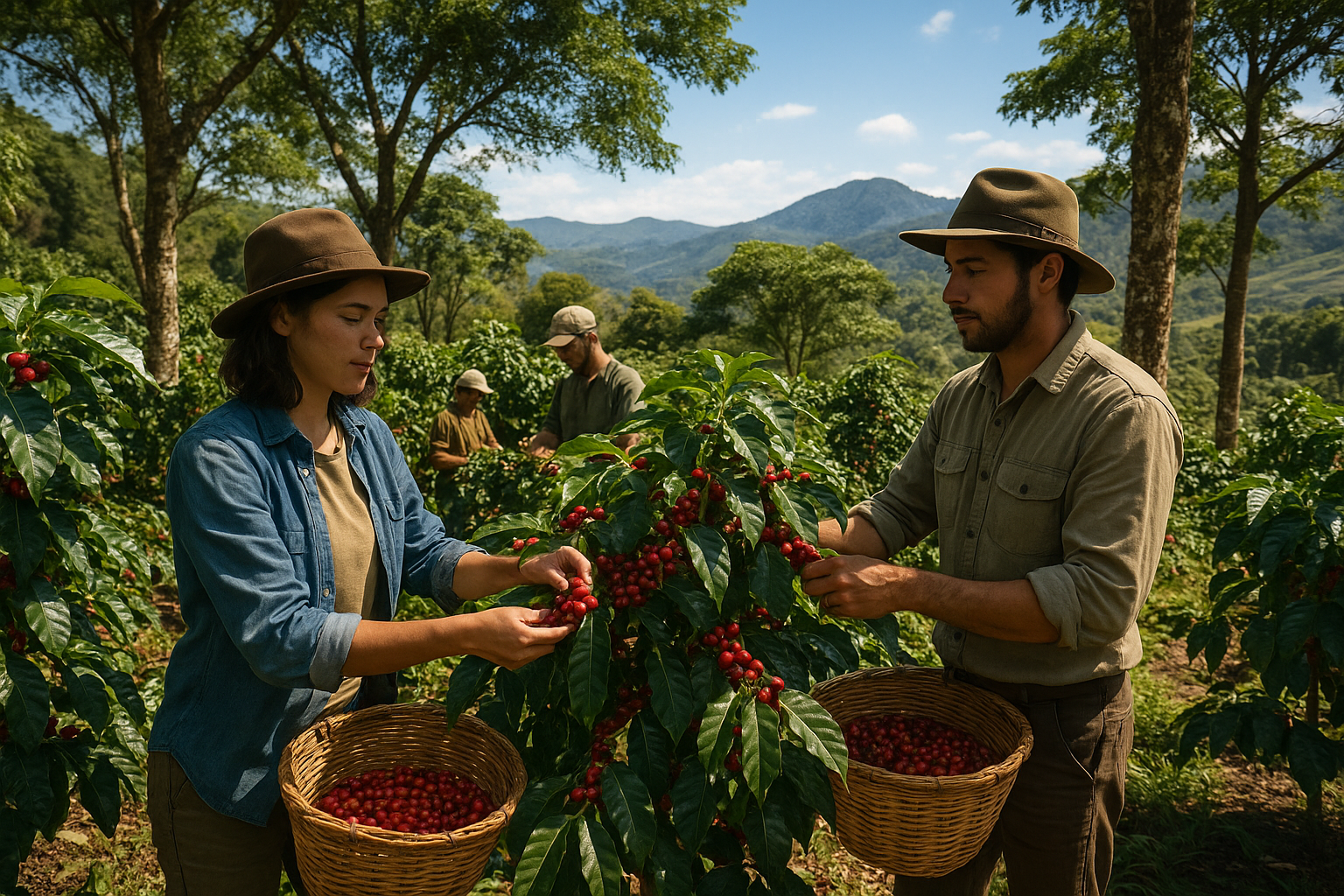Organic coffee is gaining global attention—not just among health-conscious consumers but also among environmental advocates and coffee professionals.
This growing movement goes far beyond trendy labels; it embodies a fundamental shift in how coffee is grown, harvested, and consumed.
In this article, we’ll dive deep into the organic coffee revolution and explore how it’s positively impacting the planet, one cup at a time.
What Is Organic Coffee, Exactly?
Organic coffee is grown without synthetic fertilizers, pesticides, herbicides, or genetically modified organisms (GMOs). But more than just being “chemical-free,” it adheres to rigorous agricultural and ecological standards. Certified organic coffee farms often rely on biodiversity, composting, natural pest control, and sustainable water usage.
To earn an official “organic” certification, producers must go through extensive inspections and comply with strict regulations set by organizations like the USDA or EU Organic.
The Environmental Costs of Conventional Coffee Farming
Traditional coffee farming—especially when done on an industrial scale—has a dark side. Large-scale monoculture plantations often lead to deforestation, water pollution, and soil degradation. The use of chemical pesticides and fertilizers not only harms local ecosystems but also affects nearby communities that rely on that land and water.
Moreover, the carbon footprint of industrial coffee farming is considerable, largely due to energy-intensive processes and international shipping. Organic coffee, on the other hand, aims to reduce or neutralize many of these impacts.
Biodiversity: The Unsung Hero of Organic Coffee Farms
One of the most powerful benefits of organic coffee farming is the preservation of biodiversity. Many organic farms use agroforestry techniques—meaning they grow coffee under the shade of native trees, often alongside other crops like bananas or avocados.
This method replicates natural ecosystems, attracting birds, insects, and animals, which in turn help with natural pest control. The diversity of plant life also improves soil health and reduces the need for synthetic interventions.
Healthier Soil, Healthier Planet
Soil is the foundation of any farming system, and organic practices prioritize soil health. Composting organic material such as leaves, discarded cherries, and manure returns vital nutrients to the earth. Over time, this practice enhances soil structure, water retention, and resistance to erosion.
By avoiding synthetic chemicals, organic coffee farmers help maintain microbial life in the soil, which is critical for long-term agricultural sustainability. A single handful of healthy soil can contain billions of beneficial organisms—all working to support plant growth and capture carbon from the atmosphere.
Less Water, More Wisdom
Organic coffee farms are more likely to implement water conservation techniques such as rainwater harvesting, mulching, and drip irrigation. Traditional coffee washing methods can waste large volumes of water and contaminate nearby rivers and lakes.
In contrast, eco-conscious coffee producers are rethinking every stage of the production cycle, finding ways to minimize water usage and protect local aquatic ecosystems.
The Role of Shade-Grown Coffee in Carbon Sequestration
Shade-grown coffee doesn’t just benefit birds and insects; it also helps combat climate change. The canopy of trees used in these systems captures carbon dioxide, serving as a form of natural carbon sequestration.
Research shows that shade-grown organic coffee farms can absorb significantly more CO₂ than sun-grown monoculture farms. By turning farms into miniature forests, coffee can actually become part of the solution to global warming.
Ethical Practices and Fair Wages
Sustainability isn’t only about the environment; it’s also about people. Many organic coffee farms are small-scale and family-owned. These farmers often join cooperatives that advocate for fair wages, safe working conditions, and access to education and healthcare.
Fair Trade and similar programs often intersect with organic certifications, creating a holistic system where both the planet and the people involved in coffee production benefit.
Are Organic Certifications Always Reliable?
One common critique is that certifications can be expensive and difficult for small farmers to maintain. While the standards are beneficial, they can be bureaucratic and may exclude some genuinely sustainable producers.
That’s why some coffee experts and ethical roasters go beyond the label—visiting farms, establishing direct trade relationships, and providing transparency about sourcing. Informed consumers can do their part by researching the brands they support and asking questions about origin and practices.
The Taste of Organic Coffee: Is It Better?
While taste is subjective, many coffee enthusiasts claim that organic coffee has a cleaner, more complex flavor. Because the beans are grown in nutrient-rich soil and are not exposed to harsh chemicals, their natural characteristics are often more pronounced.
Furthermore, organic farms usually focus on quality over quantity, using selective harvesting and slow drying techniques. This careful approach results in beans that are well-developed and full of flavor.
Global Impact: How Your Daily Cup Makes a Difference
Every cup of organic coffee you drink sends a signal to the market. As demand for sustainable coffee grows, more producers are encouraged to adopt environmentally friendly practices.
By choosing organic, you’re contributing to reduced pesticide use, improved labor conditions, healthier soil, and biodiversity preservation. It may seem like a small act, but multiplied across millions of cups per day, the impact is profound.
Brands Leading the Organic Movement
Several coffee companies are setting new standards in the organic movement:
- Counter Culture Coffee: Offers full traceability and invests in farmer training
- Equal Exchange: A pioneer in combining organic and fair-trade practices
- Café Orgánico Marcala (Honduras): A cooperative that focuses on female-led farms
- Kicking Horse Coffee (Canada): Organic and shade-grown coffee committed to transparency
When buying organic, look for certifications, but also research the stories behind the brands.
Can Organic Coffee Feed the World?
One of the biggest debates around organic farming is scalability. Critics argue that organic yields are lower and may not meet global coffee demand. However, proponents believe that with innovation, knowledge-sharing, and proper incentives, organic systems can be scaled responsibly.
Plus, many of the problems in conventional systems—like overproduction, waste, and environmental destruction—suggest that the current model is not sustainable long-term. Organic farming offers a promising path forward, especially when supported by fair policies and consumer awareness.
Final Thoughts: A Conscious Cup
Switching to organic coffee is more than a dietary choice—it’s a lifestyle statement. It reflects a growing awareness of our interconnectedness with the environment, communities, and economies that support our daily habits.
By supporting organic coffee, you’re casting a vote for sustainability, ethical labor, biodiversity, and better health—for yourself and the planet.

